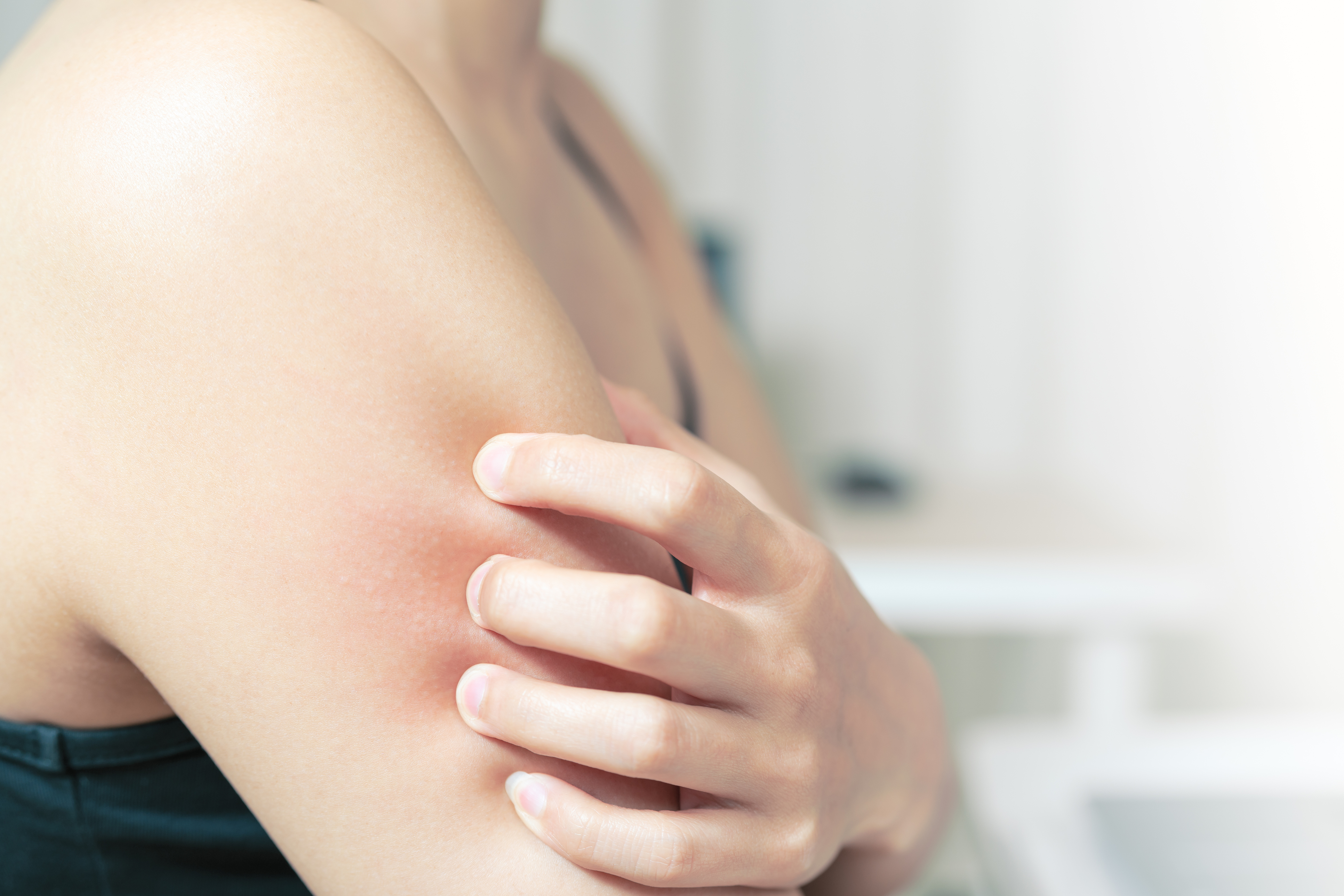Eczema is a topic that is not discussed very openly, despite how frequently it is experienced and the knock-on effect it can have on the self-esteem of sufferers. As the weather is turning colder and the winter months creep in, our skin naturally gets drier no matter what.
What is eczema?
Eczema is an uncomfortable and irritating condition to suffer from. It is is a sign that your body is experiencing inflammation – that something is attacking you from the inside and the solution is trying to decipher what’s wrong from the inside.
Eczema triggers
There are plenty of triggers for an Eczema flare-up such as chemicals and other additives found in creams, lotions and detergents. However, a flare-up can often be even worse when your body is out of balance in some way.
9 Steps To eliminate eczema naturally
1. Try an elimination diet
The two most common and harmful food intolerances are gluten and dairy. Try removing gluten, dairy and sugary, processed foods from your diet.
2. Anti-inflammatory foods
Eat plenty of wild-caught fish and plant foods. Add spices to your food liberally, turmeric is especially effective for anti-inflammatory purposes.
3. Normalise gut flora
Ensuring you have normal gut flora reduces overall immune activation and many inflammatory diseases such as eczema. For this, prebiotics, probiotics and digestive enzymes are essential. Ask your local CarePlus pharmacist for advice on which probiotics would be best for you.
4. Supplements supplements supplements
Fish oil, evening primrose oil and vitamins D and A work a treat for eczema sufferers.
5. Get better sleep
Studies show that a lack of sleep or sleep deprivation increases inflammation and exacerbates eczema. Thus, it is important to aim for 8 hours of quality, interrupted sleep each night. If you find this difficult, introduce a wind-down, relaxing time into your evening routine.
6. Exercise regularly
Studies show regular exercise reduces inflammation and boosts your immune system. Whether you’re a newbie or a seasoned pro, make it your own.
7. Control stress levels
Besides making you absolutely miserable, studies link chronic stress levels with inflammation. Whether you do meditation, deep breathing, yoga or another form of stress reduction, make it a priority and do it regularly.
8. Sunflower seed oil / coconut oil
Sunflower seed oil can stimulate the production of our bodies’ natural ceramide internally, which helps improve the skin barrier. It also serves as an anti-inflammatory. As regards Coconut Oil, a study with Eczema patients showed staph bacteria on the skin decreased by 95 percent after coconut oil was applied to the skin.
Apply the oils when the skin is still wet or mix it into your moisturiser.
9. Bathing
Take a bath at least once a day (rather than less) and moisturise immediately after. This washes allergens, pollutants, and any other potential irritants from the skin and helps to keep it hydrated.
Baby eczema tips:
1. Moisturise
Just like adult eczema, it is essential to keep your baby's skin nourished and moisturised at all times. The best time to do this is just after bathing your little one, by applying a balm or emollient as this is when the skin absorbs the most moisture. Ask your CarePlus pharmacist for further advice on which products would be suitable for your baby.
2. Steer clear of allergens
Common triggers of eczema flare-ups are scratchy wool clothing, fragranced detergents and dust.
3. Go fragrance-free
Following on from our last tip - be sure to check all skincare products you are using on your baby's skin to ensure they are fragrance-free. Additionally, the fewer ingredients a product has, the better.
4. Use emollient & bath time tips
Adding an emollient oil to the bath can be soothing for your baby's skin. When bathing your little one, it is recommended to keep bath times short and also to keep the water at a mild temperature, as water being too hot or too cold can cause a flare-up.
5. Go for glycerol
When choosing a moisturiser for your baby’s skin’s, try to avoid any with preservatives. Choosing a moisturiser with a glycerol base can help relieve itching and rough skin patches that commonly come with eczema.
Skin expert and dermatologist, Dr Justine Kluk also recommends avoiding urea or lactic acid, as they can irritate the skin of very young children, thus causing a flare-up.
If you have any questions regarding eczema please call into your local CarePlus Pharmacy


